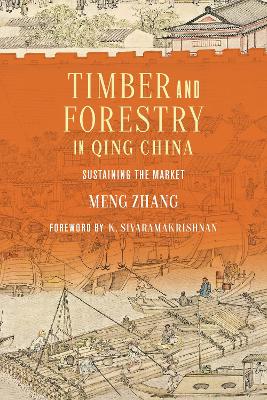In the Qing period (1644–1912), China's population tripled, and the flurry of new development generated unprecedented demand for timber. Standard environmental histories have often depicted this as an era of reckless deforestation, akin to the resource misuse that devastated European forests at the same time. This comprehensive new study shows that the reality was more complex: as old-growth forests were cut down, new economic arrangements emerged to develop renewable timber resources.
Historian Meng Zhang traces the trade routes that connected population centers of the Lower Yangzi Delta to timber supplies on China's southwestern frontier. She documents innovative property rights systems and economic incentives that convinced landowners to invest years in growing trees. Delving into rare archives to reconstruct business histories, she considers both the formal legal mechanisms and the informal interactions that helped balance economic profit with environmental management. Of driving concern were questions of sustainability: How to maintain a reliable source of timber across decades and centuries? And how to sustain a business network across a thousand miles? This carefully constructed study makes a major contribution to Chinese economic and environmental history and to world-historical discourses on resource management, early modern commercialization, and sustainable development.
- ISBN10 0295748877
- ISBN13 9780295748870
- Publish Date 30 June 2021 (first published 30 May 2021)
- Publish Status Active
- Publish Country US
- Imprint University of Washington Press
- Format Paperback (US Trade)
- Pages 280
- Language English
